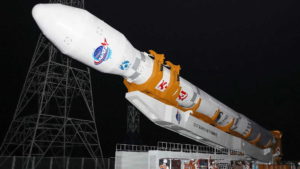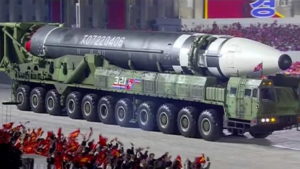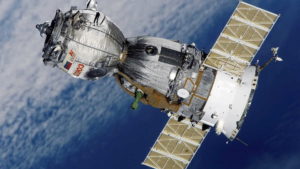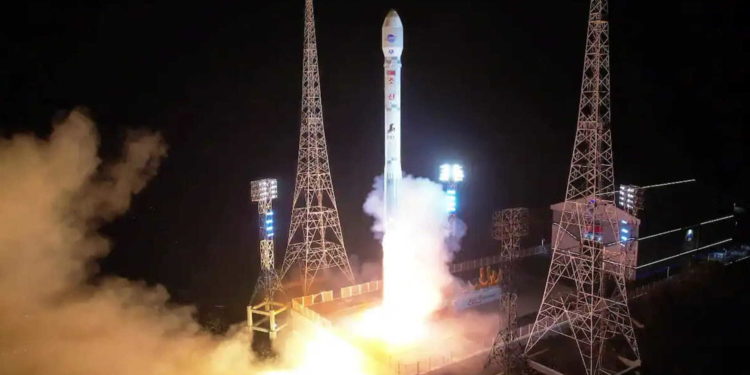North Korea launches missile carrying the military spy satellite into space, but the mission ended up unsuccessful marking the third failed attempt. On Monday, North Korea attempted to send a spy satellite into space, but the rocket burst soon after takeoff.
The state of North Korea is often in the headlines because of its nuclear missions and attempts to strengthen the country with military equipment. The most recent unsuccessful launch of satellite is also an attempt to enhance the military efforts of the country.
Nonetheless, the KCNA reported the failure of the mission mid-way. According to the report, the explosion most likely happened because of a recently designed liquid-fuel rocket motor. This claim is made based on initial examination. Still, investigators are looking at other possible causes of unsuccessful spy satellite launches.

Kim Jong-un, the leader of North Korea, has made the mission of strengthening the defense a top priority.
North Korea launches missile carrying satellite and the entire process was under observation because of sanctions.
As part of his military preparations, the North Korean leader wants to launch numerous satellites into space.
North Korea claims it needs these satellites to make its nuclear threats appear more credible and to better monitor and attack its opponents.
Furthermore, before this, representatives from South Korea and Japan had said that the spy satellite launch seemed to be a failure to reach its orbit.
The Joint Chiefs of Staff of South Korea said earlier on Monday that North Korea had fired an unidentified projectile southwards across the Yellow Sea.
A few minutes after the launch of satellite that ended in failure, multiple pieces were seen in the ocean and flames burning were predicated to be caused by fuel used in the project. Intelligence agencies from the United States and South Korea were currently assessing if the launch was successful.
North Korea launches missile carrying a satellite but failed to achieve its goal

Intending to launch the first one before June 4, Kim declared intentions to launch three additional satellites this year.
In November 2023, North Korea launched its first spy satellite successfully.
Launched from the Tongchang-ri space station in northwest North Korea, the rocket traveled across the sea to the south, crossing the Korean Peninsula to reach China. The rocket burst in midair two minutes after takeoff, sending debris into the water. Sources from North and South Korea confirmed the failure.
Nevertheless, North Korea is a country under sanctions and several limitations are there on the administration regarding experimentation. Many times, North Korea’s military actions such as its missile testing and satellite launches are blamed for fuelling tensions in the region. On the other side, North Korea views the joint military drills between the US and South Korea as aggressive acts in retaliation.

Japan, South Korea, and the United States all kept a watchful eye on the launch of satellite. These nations stationed Navy ships around the Korean Peninsula to observe North Korea launches missile and collect data. Resolutions passed by the UN Security Council forbid North Korea from using long-range rockets because their technology is similar to that of intercontinental ballistic missiles, which may reach far-off targets like the US.
Furthermore, South Korea and Japan typically go on high alert when North Korea conducts these launches, advising citizens to seek shelter in case debris falls.
If we talk about things contrary to what has happened, North Korea’s military might have advanced significantly if the launch of satellite had been successful. The strategic position of North Korea would have been strengthened by improved satellite exploration or spy satellite launch, which would have allowed it to better monitor its competitors. This event might have raised tensions in the region and prompted a more powerful reaction from neighboring nations.

Nonetheless, it is also being said North Korea has received assistance from Russia in developing its nuclear and missile programs.
Even though it didn’t work out, the occurrence shows how complexly military ambition, global diplomacy, and regional security relate.













